So, onwards to new series, like The Killing and Rubicon. But will we ever see anything so grand and all-encompassing as The Wire again?
Despite the title, this blog has a low quotient of both strange news and plankton. In reality, this blog is simply a means for me to record my thoughts, musings and bitterness in a crisp ASCII format. I should confess, however, that I do have a professional connection to plankton ...
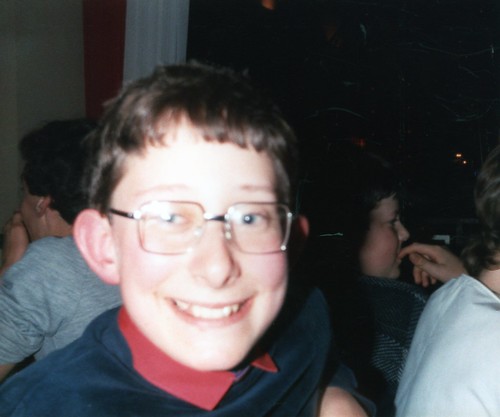
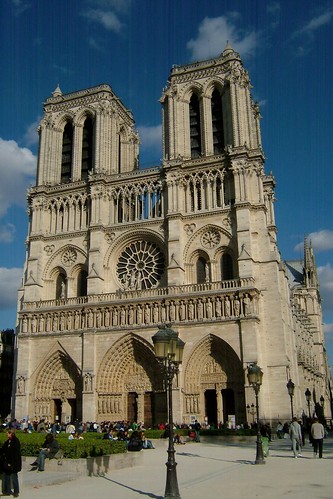
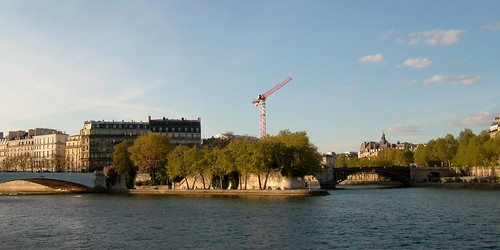

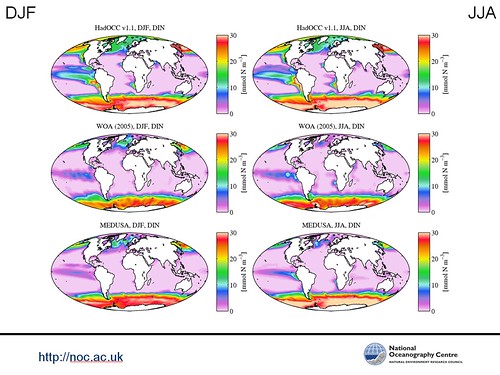
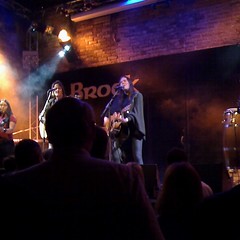 Thanks to the sharp eyes and organisational efforts of JA, I was out Wednesday night to catch the rock/folk musician Thea Gilmore in the Southampton venue The Brook. I only got acquainted with her music courtesy of a birthday present last year (from JA and AM), and that was a very enjoyably aberrant Christmas album. Given that it's now April, songs from this album were unlikely to make the night's set list, so did the rest of her work live up to this?
Thanks to the sharp eyes and organisational efforts of JA, I was out Wednesday night to catch the rock/folk musician Thea Gilmore in the Southampton venue The Brook. I only got acquainted with her music courtesy of a birthday present last year (from JA and AM), and that was a very enjoyably aberrant Christmas album. Given that it's now April, songs from this album were unlikely to make the night's set list, so did the rest of her work live up to this?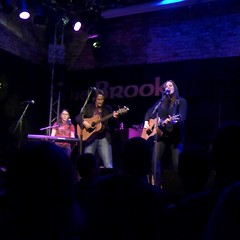 In a word: easily. The night was a great mix of rock/folk drawn from (as I gathered) her various albums, along with the occasional eclectic cover version. I'm usually a little twitchy about folk, because of its worthy, sandal-wearing roots, but Gilmore's nothing like a purist on this score, and any fears I had were quickly dispelled (there was even a gag at folk's expense when guitar-tuning was described as "good enough for folk"). As for the band, it was a four (sometimes just two) person affair, with Gilmore, her husband-collaborator Nigel Stonier, and two additional tour musicians, Tracey Browne and someone on drums whose name I've forgotten (sorry). That said, it certainly felt more like a long-established troupe of players familiar with one another (though I'm obviously no music pro).
In a word: easily. The night was a great mix of rock/folk drawn from (as I gathered) her various albums, along with the occasional eclectic cover version. I'm usually a little twitchy about folk, because of its worthy, sandal-wearing roots, but Gilmore's nothing like a purist on this score, and any fears I had were quickly dispelled (there was even a gag at folk's expense when guitar-tuning was described as "good enough for folk"). As for the band, it was a four (sometimes just two) person affair, with Gilmore, her husband-collaborator Nigel Stonier, and two additional tour musicians, Tracey Browne and someone on drums whose name I've forgotten (sorry). That said, it certainly felt more like a long-established troupe of players familiar with one another (though I'm obviously no music pro).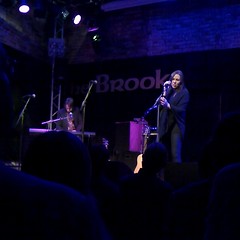 Of Gilmore's own material, the main things I'd say was that it was diverse, polished and really made the most of her best asset: her voice. With this, she's got charm, control and range, and is perfectly capable of joyously belting out one number only to follow up with a more delicate song from the opposite end of the spectrum. As such, we got slow ballads, upbeat raunchier numbers and tracks such as Icarus Wind, which were more sparing musically, but really let Gilmore's singing shine. And she finished the evening with a solo, music-less lament that used only her voice. Re: the cover versions, we got a bit of Dylan, Dolly Parton (the Archers-pertinent Jolene) and, bizarrely but brilliantly, Guns N'Roses (via a great folk version of Sweet Child o' Mine). In introducing the first of these, Gilmore revealed that: (a) for her next project, she has re-recorded Dylan's album John Wesley Harding in celebration of the singer's (Dylan's) 70th birthday; and (b) she can do a mean Bob Dylan impersonation!
Of Gilmore's own material, the main things I'd say was that it was diverse, polished and really made the most of her best asset: her voice. With this, she's got charm, control and range, and is perfectly capable of joyously belting out one number only to follow up with a more delicate song from the opposite end of the spectrum. As such, we got slow ballads, upbeat raunchier numbers and tracks such as Icarus Wind, which were more sparing musically, but really let Gilmore's singing shine. And she finished the evening with a solo, music-less lament that used only her voice. Re: the cover versions, we got a bit of Dylan, Dolly Parton (the Archers-pertinent Jolene) and, bizarrely but brilliantly, Guns N'Roses (via a great folk version of Sweet Child o' Mine). In introducing the first of these, Gilmore revealed that: (a) for her next project, she has re-recorded Dylan's album John Wesley Harding in celebration of the singer's (Dylan's) 70th birthday; and (b) she can do a mean Bob Dylan impersonation!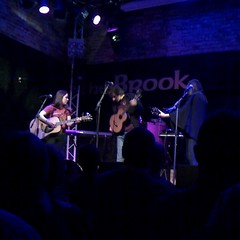 Overall, it was a really enjoyable gig. Made all the more so by Gilmore's humourous engagement with the audience - she's no shrinking violet or tortured, introverted artist. I'll definitely be looking out for her again in the future (or, more likely, JA will, and he'll tell me about her).
Overall, it was a really enjoyable gig. Made all the more so by Gilmore's humourous engagement with the audience - she's no shrinking violet or tortured, introverted artist. I'll definitely be looking out for her again in the future (or, more likely, JA will, and he'll tell me about her).
 I just read a piece in this week's Nature that evaluates the cost per launch of the shuttle. Over the whole programme of 131 flights, the cost averages out at $1.5 billion a pop. Making the assumption that a post-doc costs approximately £100K per annum (including overheads), this means that a single shuttle launch (at today's exchange rate of £1:$1.64) works out at about 9150 post-doc years. Though I've always been a big shuttle fan (see image), I wonder if that's good scientific value for money? As I guess some of the $1.5 billion goes on things like researchers, it's not quite as either-or as I'm implying there for one thing. But it's still a whole lot of cash.
I just read a piece in this week's Nature that evaluates the cost per launch of the shuttle. Over the whole programme of 131 flights, the cost averages out at $1.5 billion a pop. Making the assumption that a post-doc costs approximately £100K per annum (including overheads), this means that a single shuttle launch (at today's exchange rate of £1:$1.64) works out at about 9150 post-doc years. Though I've always been a big shuttle fan (see image), I wonder if that's good scientific value for money? As I guess some of the $1.5 billion goes on things like researchers, it's not quite as either-or as I'm implying there for one thing. But it's still a whole lot of cash.
And why are there two Dakotas? Why was your country's map-making and state building left to cartographers of such feeble vision? Could you not have at least named North Dakota something more dramatic, like Avalon or ... Heathcliff?But all this cleverness and wry humour is just wasted in a novel whose plot makes it almost impossible to take seriously.